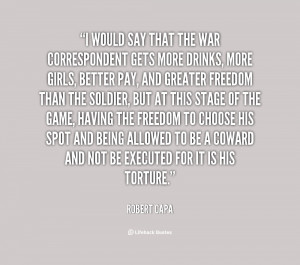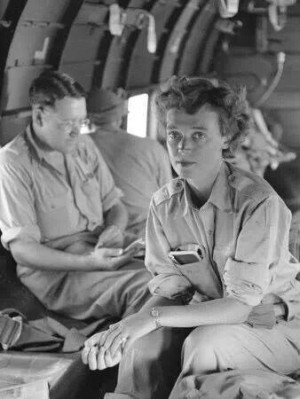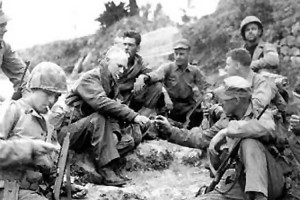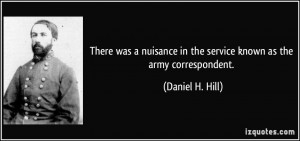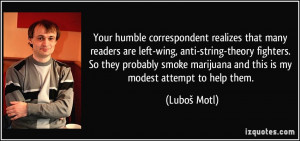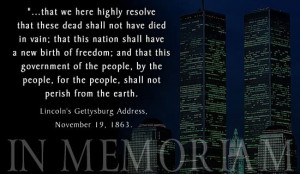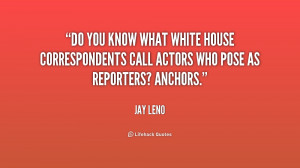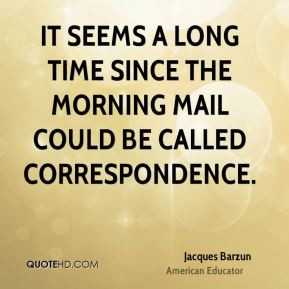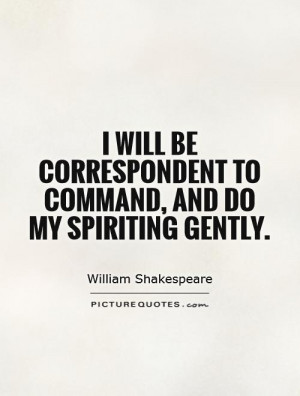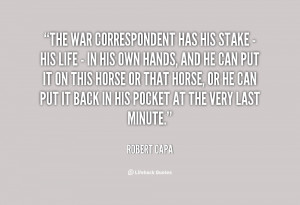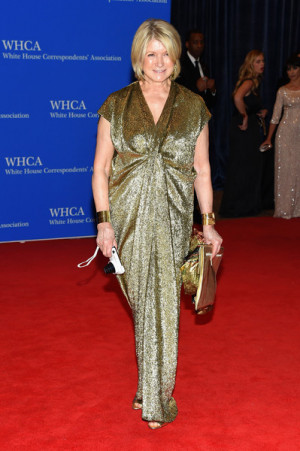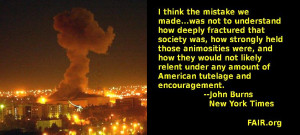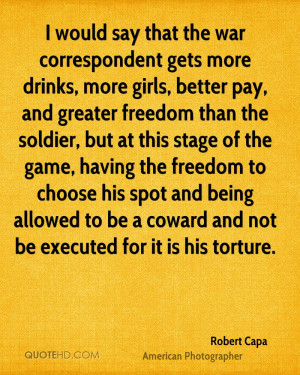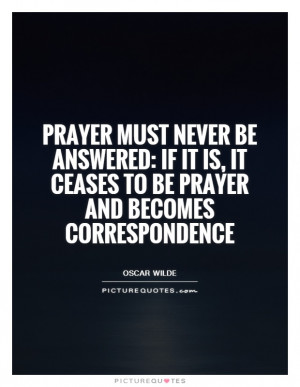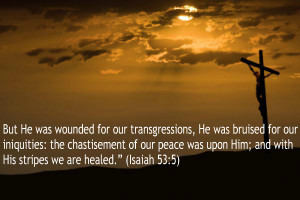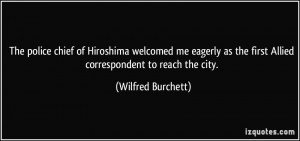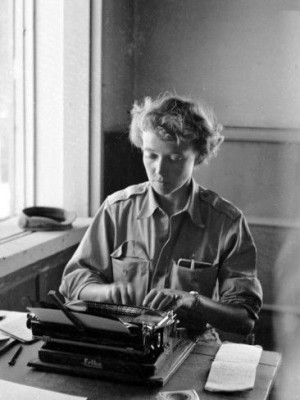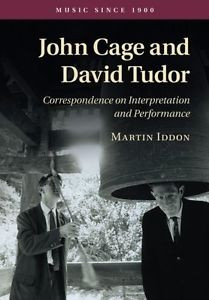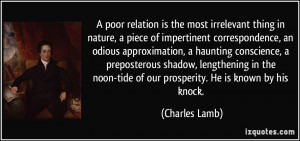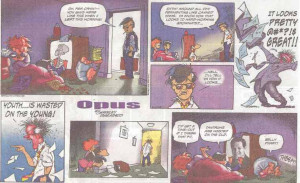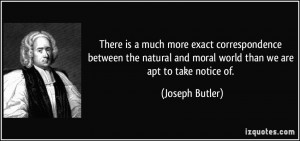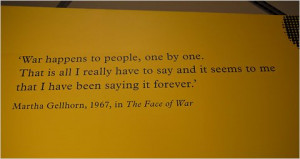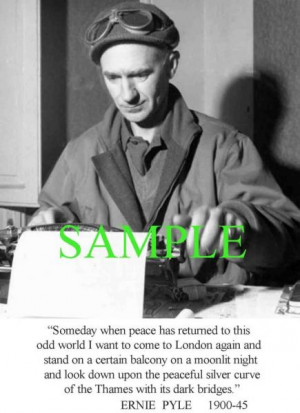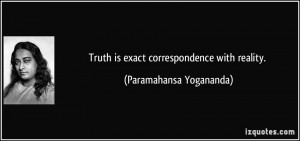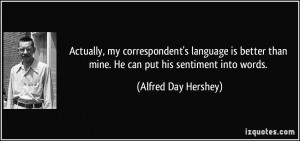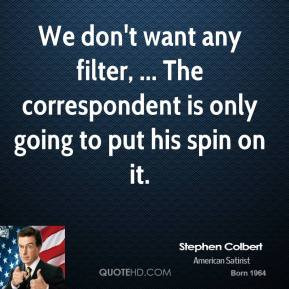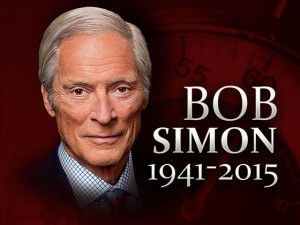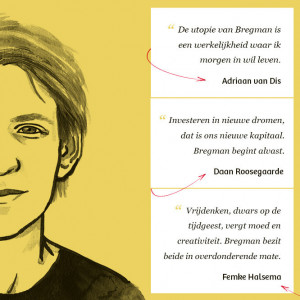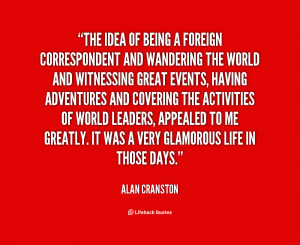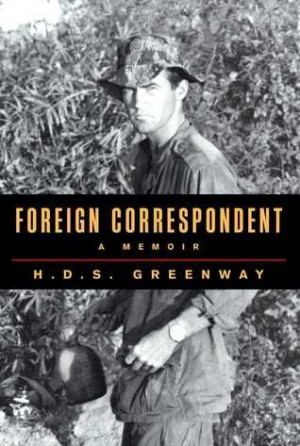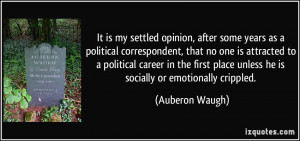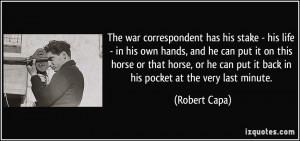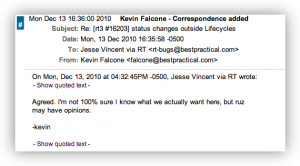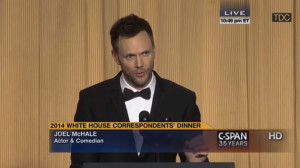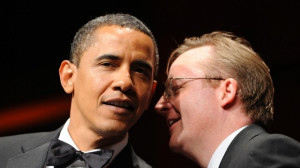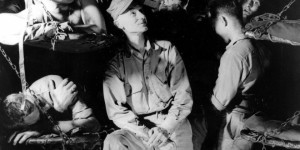Correspondent Quotes
Like all young reporters - brilliant or hopelessly incompetent - I dreamed of the glamorous life of the foreign correspondent: prowling Vienna in a Burberry trench coat, speaking a dozen languages to dangerous women, narrowly escaping Sardinian bandits - the usual stuff that newspaper dreams are made of.
I was a news reporter for 16 years, seven of them a foreign correspondent in the Middle East, Africa and the Balkans. Perhaps the most useful equipment I acquired in that time is a lack of preciousness about the act of writing. A reporter must write. There must be a story. The mot juste unarriving? Tell that to your desk.
The great thing about being a print journalist is that you are permitted to duck. Cameramen get killed while the writers are flat on the floor. A war correspondent for the BBC dedicated his memoir to 50 fallen colleagues, and I guarantee you they were all taking pictures. I am only alive because I am such a chicken.
There's very little you could do to prepare to be a correspondent on 'The Daily Show,' because it's not being a journalist, it's not being an actor. It involves elements of both of those things, but they're not required necessarily as job experience. It's helpful if you know how to improvise, but again, not a requirement.
